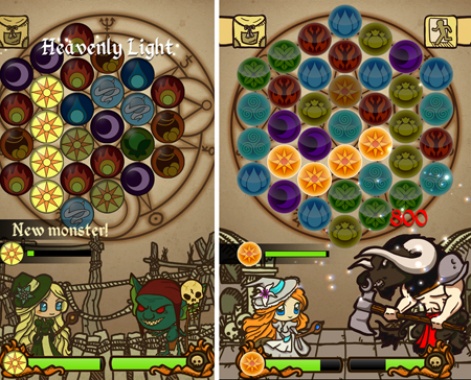Shintaro Kanaoya's career has always been reinforced by his Japanese connections.
Back in the late 1980s, armed with a Nintendo NES console and copies of Famitsu magazine sent over by his grandmother, he became the Japanese expert for UK magazines such as The Games Machine, despite being based in London.
Moving into development, he joined Bullfrog, working on the Dungeon Keeper series and EA, where he produced the Japanese versions of The Sims, Black & White and some of the Harry Potter games.
More recently he worked on what became EA's Origin digital distribution platform, before switching to Microsoft and relocating to Vancouver.
Fill the gap
So when thinking about the opportunities in the global mobile games market, it was Japan that he turned to.
"I don't think Japanese consumers are getting some games they might enjoy," he says, explaining his decision to start Chorus Worldwide, which aims to bring the best of western indie mobile games to Asian markets, starting with Japan.
"The Japanese audience is comfortable spending money on mobile games and it devours content," he adds.
He says that as well as his knowledge of the market, Japan is more straightforward to operate in than other markets in Asia, notably China.
"Japan is the biggest opportunity for us at the moment," he states. "There's no weirdness. It's very straightforward."
Matching Puzzle & Dragons
The first game Chorus plans to release also demonstrates Kanaoya's connections, although this time, in the UK.
Glyph Quest was developed by Alexander Trowers, who Kanaoya worked with back at Bullfrog.
"I think it will be a good test of our product pipeline and processes," he says of the elemental symbol-matching RPG, which gained strong critical acclaim following its January 2014 release.
Of course, some elements will be changed.
"The look was too muted for Japan, so we’re changing the art quite significantly," explains Kanaoya.

The shapes of the characters remain the same but the art palette is now much louder.
Other changes include the ability to exit battles, while the $1.99 level 6 paywall has been replaced with a currency system, combined with in-app advertising.
Indie niche
Kanaoya is keen to stress that in keeping with the games Chorus plans to release, it's maintaining its indie sensibilities in terms of business model too.
"We know our audience is going to be niche, so we we're looking for games that offer simple mechanics, but which have depth.
The Japanese audience is comfortable spending money on mobile games and it devours content.Shintaro Kanaoya
"I don't think we're going to release a lot of games-as-a-service. Our brand will be 'interesting games from the west'," he says.
This approach is also based on company's structure, which currently consists of two full-time staff - Kanaoya in Vancouver, and an art director in Japan - with additional skills brought in as-required.
"We have some seed funding, but we're looking to see how this works before looking to raise money and scale," Kanaoya reveals.
That said, he plans to release "5 or 6 games" in 2014, with a title from Scottish developer Beartrap Games pencilled in as Chorus' second release.
Shintaro Kanaoya will be talking at Pocket Gamer Connects Helsinki 2014, which will be held 16-17 June 2014, and is based around the theme of 'East meets West'.
You can find more details via the website, and check out more about our speakers here.

















